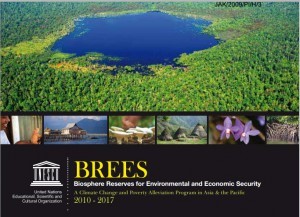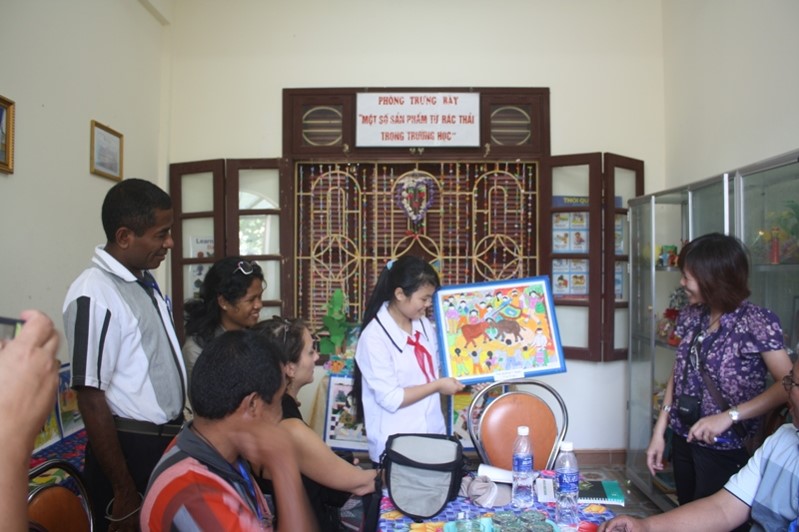
BREES is a long term regional climate change and poverty alleviation program that will work with communities, micro-finance institutions, educational institutions, government, and donor agencies to use biosphere reserves as learning centers for environmental and human adaptability to climate change effects and to improve economic conditions for the rural poor in and near biosphere reserves.
BREES will work with donors and micro-finance institutions to establish micro financing and grant networks in communities surrounding the nearly 150 biosphere reserves in Asia-Pacific, BREES Program will invest heavily in community-based efforts to alleviate poverty, and establish a critical mass of resources and people to effectively safeguard important carbon sinks, and develop innovative solutions to enhance livelihoods of the rural poor.
What are biosphere reserves?
Biosphere reserves are ‘living laboratories for sustainable development’ and represent learning centers for environmental and human adaptability. Biosphere reserves are the only sites under the UN system that specifically calls for conservation and sustainable development to proceed along mutually supportive paths. Such mutuality requires cultural sensitivity, scientific expertise, and consensus-driven policy and decision-making. As of March, 2008 to date, there are 531 terrestrial, coastal, and marine biosphere reserves throughout the world including 147 reserves in 27 Asian and Pacific countries.

How can micro-financing help in sustainable development?
Micro-financing is a new economic movement popularized by the recent Nobel Prize winner Professor Muhammad Yunus to provide financial access and services to the poor. Micro-financing, particularly to women, has shown surprising results throughout Asia: exceptionally high returns and low delinguency rate; large-scale outreach; efficiency in providing financial and social services; and an important role in poverty alleviation, gender equality, social harmony, cultural preservation, and environmental sustainability.
Micro-finance can be an agent for sustainable development by encouraging ventures that promote: renewable energy; lower energy use; reduction of pollution; sound natural resource management; etc. Indeed these ventures have been carried out through micro-financing globally, and have shown great potential for sustainable development.
What role can UNESCO and biosphere reserves play in climate change and poverty alleviation?
Biosphere reserves through the BREES program are a perfect platform for reducing poverty and addresing climate change at the same time. They have a huge potential to: build on-the-ground partnerships that will harmonize needs of biodiversity conservation, climate change mitigation and adaptation and socioeconomic and cultural well being of communities; represent large natural areas that serve as carbon sinks; foster solutions that benefit the local economy and environment; promote local social and economic networks; and champion local solutions for global problem.

Recent Comments